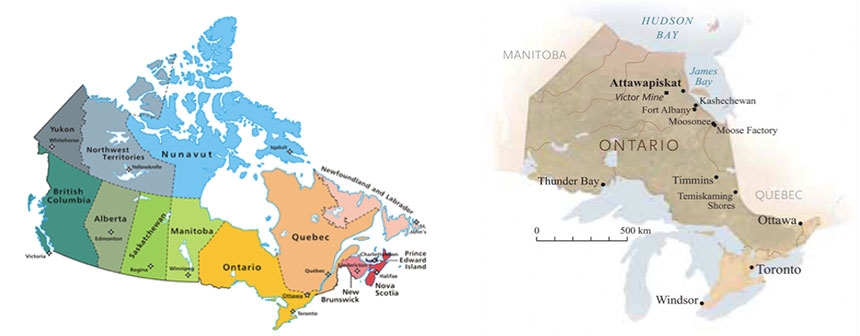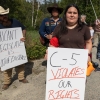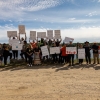Attawapiskat Chief Bruce Shisheesh declared a state of emergency calling for immediate action and long-term support following a dramatic increase in suicide attempts. The community has reported 101 suicide attempts since September 2015, with 28 attempts in March and 11 on Saturday alone.
Chief Bruce Shisheesh said there are suicide attempts just about every night calling it a “crisis mode.”
Nishnawbe Aski Nation (NAN) Grand Chief Alvin Fiddler says the State of Emergency declared by Attawapiskat First Nation on the suicide crisis faced by the remote, northern community is a shocking reflection of the lack of action to address the suicide epidemic across NAN territory.
“We have been working around-the-clock over the past few days to do everything we can to make sure that the people of Attawapiskat have the supports they need and we will redouble our efforts to help Chief and Council deal with the terrible situation,” said Grand Chief Alvin Fiddler. “The numbers of suicide attempts experienced by this community are shocking and nothing short of a national tragedy.”
Ontario Regional Chief Isadore Day is calling the Attawapiskat suicide state of emergency a tipping point for the First Nation health care crisis in Canada.
“Until we deal with the social determinants for First Nation health, these emergency declarations and crises will continue,” said Ontario Regional Chief Day. “There must be a combined and coordinated effort from all levels on all aspects of First Nation health in order to repair this broken system.”
The remote northern Ontario community of some 2,000 people has seen more than 100 suicide attempts in the past seven months; one person has died. The youngest person to attempt suicide was 11 years old, while the oldest was 71.
“The cycle of poverty, poor health, suicides, violence will continue for another generation if determinants of health are not addressed immediately. These are Third World living conditions and these emergency declarations are the result. Not one average Canadian would let their children live in such conditions. This should be our tipping point as a people, as a nation and as a country. Canada must invest billions of dollars now on both clean water and adequate housing to begin with,” Day said.
Since last fall, the Chiefs of Ontario had presented five key areas that must be immediately addressed by the federal government:
1. Ending the First Nation health crisis, which can only be addressed by fixing the water crisis, ensuring access to health services, and fixing health benefits for First Nations;
2. Eliminating abject poverty through investments in housing, healthy affordable food, infrastructure, education and training;
3. Immediately implementing mental health and addiction services to address the youth suicide crisis, prescription drug abuse, and mental wellness;
4. Recognizing First Nation authority over land and resources, as recognized within our Treaties; and
5. Access to new technologies, such as broadband Internet and green energy.
“All governments must fast-track this investment over two years, and also look at the lack of movement over the last decade and make-up for that level of investment as well,” said Regional Chief Day. “Ontario and Canada must work with the Nishnawbe Aski Nation First Nations in the coming weeks on a plan of immediate action to address health, suicide and housing crises. And in the coming months, Canada and the provinces must work with First Nation leadership to immediately address the needs for the approximately 100 communities that exist in Third World conditions,” Day said.

















On December 2, 2025 during a Special Chiefs Assembly hosted by the Assembly of First Nations, the chiefs from across Canada voted unanimously to adopt an...
An epidemic of addictions has led Mushkegowuk Council in north eastern Ontario to declare a state of emergency. A crisis has occurred including issues of...